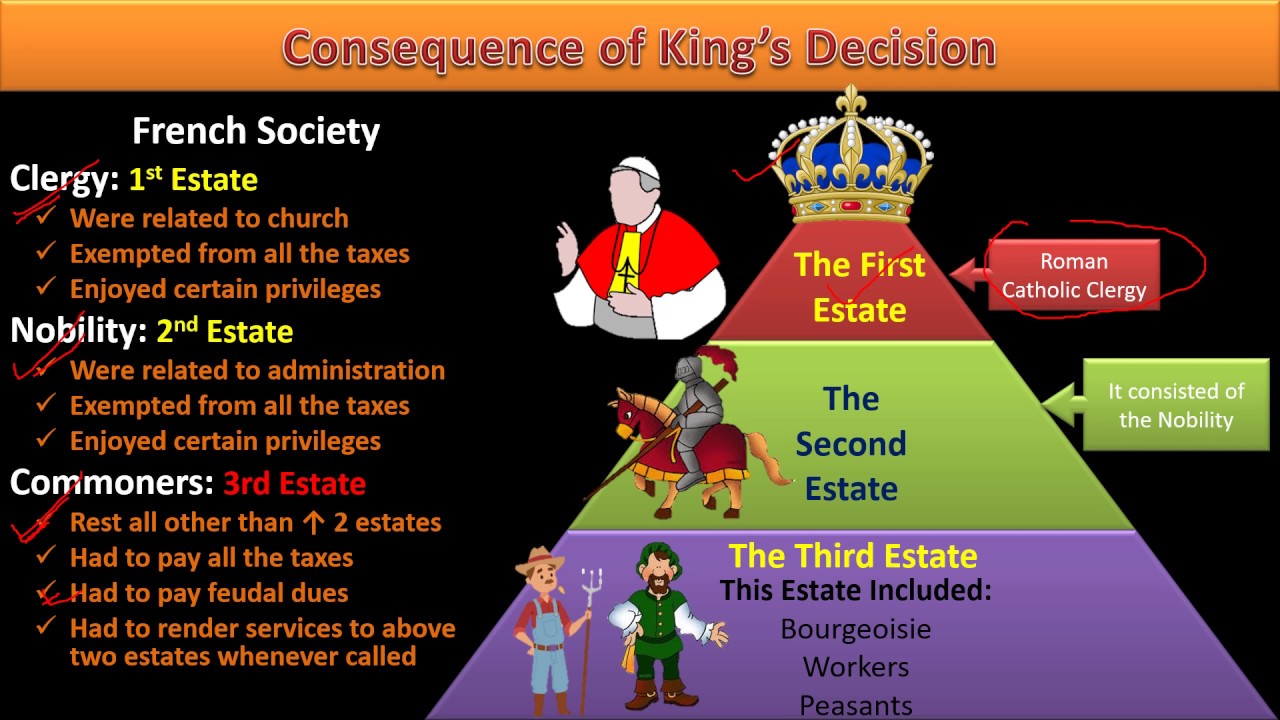The term Old Regime is used to describe the institutions prevailing in Europe, and especially in France, before 1789. This was the “Old Regime” of the eighteenth century, in contrast to the “New Regime” that was to issue from the French Revolution.
On the surface, the Old Regime followed the pattern of the Middle Ages, though the forces that were to transform the economy, society, and politics of modern Europe were already at work. To be sure, the economy was still largely agrarian, for most Europeans lived in farming villages and retained the localized outlook of the peasant.
The social foundations of the Old Regime rested on the medieval division of society into the first estate of the clergy, the second estate of the nobility, and the third estate of the commoners, which included the urban bourgeoisie and working people as well as the peasantry.
Within the third estate, only those at the top exerted much political influence—well-to-do business leaders in England and Holland, French lawyers or merchants wealthy enough to purchase government office, women who had married well or who had the ear of the influential people who attended their salons.
Every government in Europe tended to represent the interests of the few rather than the many. In this respect, it made little difference whether it was an absolute monarchy like France or Prussia, a developing constitutional monarchy like Britain, or a republic like the Dutch United Provinces.
As the eighteenth century advanced, the political and social status quo came under increasing attack from the leaders of the intellectual movement known as the Enlightenment (see Chapter 17). The economic foundations of the Old Regime were eroding under the pressure of revolutionary change, and the balance of power achieved by the Utrecht settlement was undermined.
The defeat and death of Louis XIV did not end the worldwide rivalry of England and France. Meanwhile, further shifts in the international balance resulted from the appearance of two important newcomers: Russia and the German state of Brandenburg-Prussia.

